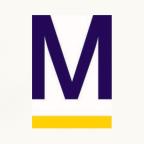
Director of Academic and Administrative Technology
Position Overview
The Director of Academic and Administrative Technology is responsible for the strategic planning and implementation of the School’s technology needs, including end-user application development and support, software and hardware acquisition and deployment, curricular development and implementation, and architectural design and network support. In collaboration with senior team members and other key stakeholders, develop and implement a strategic vision with regard to the use of technology in administrative and academic computing.
Essential Job Functions
• Provide strategic leadership and vision with regard to the School’s technology programs and goals, both short-term and long-term.
• Lead and manage the School’s Information Technology Department and direct administrative and educational IT initiatives across the enterprise.
• Serve as the School’s strategic liaison with regard to the use of technology as part of its teaching mission, and oversee the School’s technology initiatives in curricular development and deployment.
• Provide strategic vision and direction with regard to information technology standards and architectures, including network support and common systems applications.
• Provide strategic direction with regard to end-user needs and oversee operational improvements and efficiencies relating to enterprise-wide computing needs.
• Cultivate strategic partnerships with members of the School community and other key institutions.
Skills, Knowledge and Abilities
Strategy and Planning
• Ability to provide leadership and strategic direction with regard to enterprise-wide technical standards and concepts.
• Ability to interface with a variety of constituents in developing and implementing a strategic vision for administrative and educational computing.
• Ability to provide strategic direction and align information technology resources, including personnel, with enterprise-wide performance objectives.
• Ability to define and implement strategies for integration of third-party systems into business and technical architecture support needs.
• Ability to analyze existing network infrastructure, including Novell-based platform, in an effort to apply best practices and implement possible IT migration strategies as needed.
Business Processes and Computing Services
• Ability to provide strategic direction in optimizing and/or designing enterprise-wide applications.
• Ability to develop implementation strategies in information management, including end-user applications.
• Ability to define and adjust technology standards and implement governance policies and practices in a changing environment.
• Ability to provide vision and direction in shaping application build-outs, including testing and deployment activities.
• Ability to provide strategic direction in identifying and monitoring interdependencies between various end-user applications.
Risk Management
• Ability to identify potential areas where existing technology policies and procedures require change or where new ones need to be developed in order to adhere to future technology standards and concepts.
• Ability to serve as a strategic partner in aligning information technology practices with the School’s risk management policies and procedures.
• Ability to optimize and design enterprise-wide processes, including data security measurements.
Requirements
• B.S. or B.A. degree in computer science; graduate degree in equivalent field is highly desirable.
• Minimum of 8 years in a management or supervisory position.
• Minimum of 5 years in an enterprise computing environment, including experience in systems deployment and application development and implementation.
• Knowledge of company supported network platforms such as Novell and Windows is preferable.
• Strong communication skills in order to express technical concepts across a broad constituency, both verbally and in writing.
• Strong interpersonal skills in order to work collaboratively as part of a team and across a variety of educational disciplines.
• Responsibilities may require evening and weekend work in response to competing deadlines.